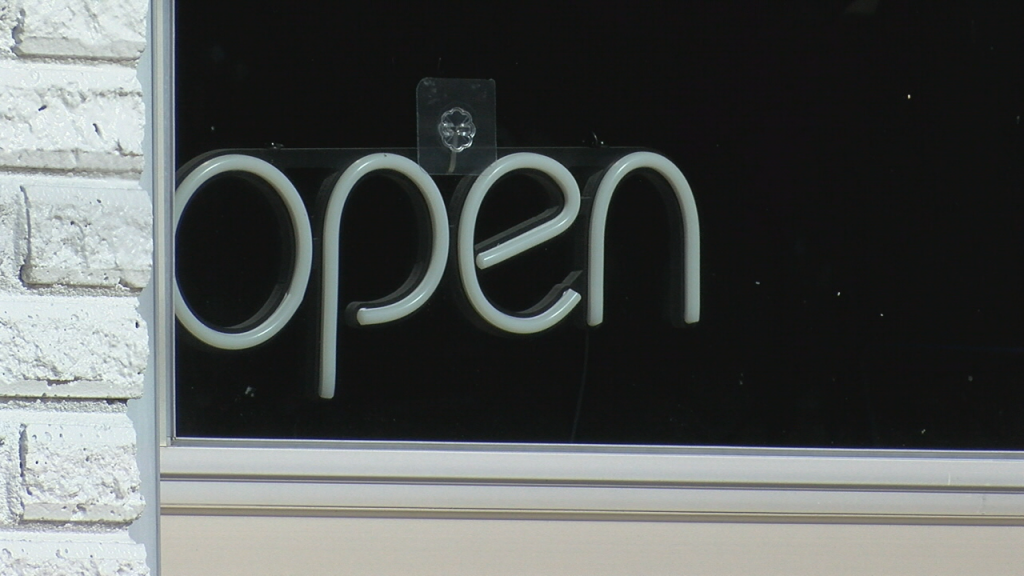Apple unveils thinner iPhone 4 with front-facing camera, flash
San Francisco, California (CNN) — Apple CEO Steve Jobs on Monday introduced the newest version of the company’s popular smartphone: iPhone 4.
“We think it’s the biggest leap we’ve taken since the original iPhone,” Jobs told an enthusiastic audience at the company’s annual developers conference. “We’re really proud of it.”
The phone comes in two colors — black and white — and will go on sale June 24 in the United States and four other countries. It will cost $199 for 16GB of storage and $299 for 32GB.
Jobs said iPhone 4 will be “the thinnest smartphone on the planet” at 9.3 mm thick — 24 percent thinner than the iPhone 3GS, the company’s current model.
The device will have a front-facing camera for video conferencing, and the camera on the back will have an LED flash, Jobs said. The phone will have a 5 megapixel camera with a backside illuminated sensor, which he said is fairly new to smartphones.
The iPhone 4 will be redesigned with glass back and metal around the sides. “Just gorgeous. And it’s really thin,” Steve Jobs said.
Jobs also cited some statistics about mobile browser usage in the U.S. The iPhone has 58.2 percent of that market — 2.5 times as much as Android’s 22.7 percent.
“This may help you put things in perspective,” he said, to some laughs. More than 5 billion apps have been downloaded from Apple’s App Store, Jobs said. He drew cheers when he said that 70 percent of app sales goes to developers — a total of $1 billion to date.
The company does not allow live video of its Worldwide Developers Conference, but you can follow the minute-by-minute action on our Twitter account, @cnntech.
Most of the anticipation about Monday’s announcement has focused on new iPhone hardware.
Apple is known for its secrecy, but some tech bloggers have potentially spoiled the biggest reveal of this event by publishing details about a prototypical iPhone.
The phone may be available as early as this summer.
The new iPhone comes as Apple faces increasing competition from other smartphone makers. In many ways, the company has set the standard for what Internet- and app-enabled phones are capable of. But the Motorola Droid, Google Nexus One and Palm Pre all have proved to be decent competitors to the Apple iPhone in recent months.
In the first few months of 2010, phones running Google’s Android operating system were more popular with consumers than those from Apple, according to CNET.
The BlackBerry, made by Research In Motion, is still the top-selling smartphone on the market. It is geared toward business clients and doesn’t have all of the features that the touch-screen phones do.
The iPhone probably won’t be the only topic of discussion at WWDC.
Jobs also announced three new iPhone entertainment apps:
Karthik Bala, senior vice president at Activision, announced a new “Guitar Hero” app for the iPhone and iPod Touch, on sale today for $2.99.
Mark Pincus, Zynga’s CEO, announced that FarmVille, the company’s wildly popular Facebook game, will have an iPhone app by the end of June.
Jobs introduced Netflix CEO Reed Hastings, who said Netflix is launching a free app for the iPhone, which will be available this summer and will let users download and watch movies on the go.
Jobs described the Apple App Store as “the most vibrant app community on the planet,” with more than 225,000 apps available. He also defended Apple’s mysterious app-approval process, saying that 15,000 apps are submitted to Apple each week and 95 percent of those are approved within seven days.
Jobs praised HTML5, which some believe will be the next standard for computer language. “HTML5 is a fully open, uncontrolled platform that is forged and defined by widely respected standards bodies,” he said.
Jobs began his remarks by praising the success of his company’s iPad tablet computer.
According to Jobs, Apple has sold more than 2 million iPads since the device went on sale two months ago. The iPad will be in 19 countries by the end of July, he said. More than 35 million iPad apps have been downloaded, or 17 apps per iPad sold.
The iPad also appears to be catching on as an electronic reading device. In 65 days, iPad users have downloaded 5 million books — about 2.5 books per iPad, Jobs said.
Wearing his usual black turtleneck and jeans, Jobs took the stage to a standing ovation from the audience and a shout of, “We love you Steve!”
The WWDC is hosting some 5,200 attendees from 57 countries.





Leave a Reply